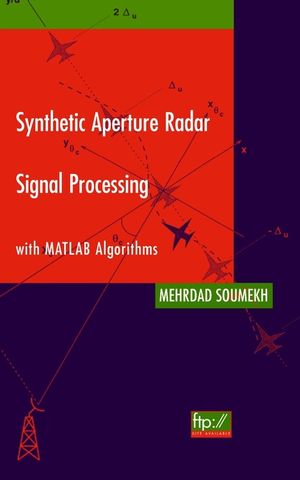Synthetic Aperture Radar Signal Processing with MATLAB AlgorithmsISBN: 978-0-471-29706-2
Hardcover
648 pages
April 1999
 This is a Print-on-Demand title. It will be printed specifically to fill your order. Please allow an additional 10-15 days delivery time. The book is not returnable.
|
||||||
An up-to-date analysis of the SAR wavefront reconstruction signal theory and its digital implementation With the advent of fast computing and digital information processing techniques, synthetic aperture radar (SAR) technology has become both more powerful and more accurate. Synthetic Aperture Radar Signal Processing with MATLAB Algorithms addresses these recent developments, providing a complete, up-to-date analysis of SAR and its associated digital signal processing algorithms. This book introduces the wavefront reconstruction signal theory that underlies the best SAR imaging methods and provides clear guidelines to system design, implementation, and applications in diverse areas-from airborne reconnaissance to topographic imaging of ocean floors to surveillance and air traffic control to medical imaging techniques, and numerous others. Enabling professionals in radar signal and image processing to use synthetic aperture technology to its fullest potential, this work:
* Includes M-files to supplement this book that can be retrieved from The MathWorks anonymous FTP server at ftp://ftp.mathworks.com/pub/books/soumekh
* Provides practical examples and results from real SAR, ISAR, and CSAR databases
* Outlines unique properties of the SAR signal that cannot be found in other information processing systems
* Examines spotlight SAR, stripmap SAR, circular SAR, and monopulse SAR modalities
* Discusses classical SAR processing issues such as motion compensation and radar calibration
* Includes M-files to supplement this book that can be retrieved from The MathWorks anonymous FTP server at ftp://ftp.mathworks.com/pub/books/soumekh
* Provides practical examples and results from real SAR, ISAR, and CSAR databases
* Outlines unique properties of the SAR signal that cannot be found in other information processing systems
* Examines spotlight SAR, stripmap SAR, circular SAR, and monopulse SAR modalities
* Discusses classical SAR processing issues such as motion compensation and radar calibration



